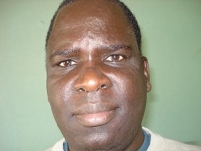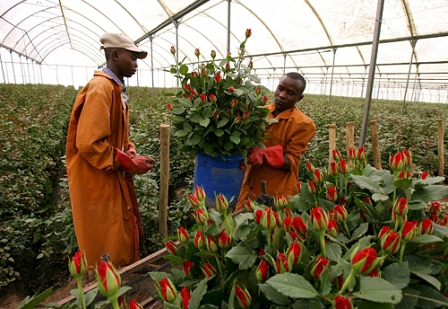Erstellt am: 23. 9. 2011 - 15:46 Uhr
The New Land Rush
Nyikaw Ochalla is from the Anuak tribe which has farmed a lush green area called Gambela in Ethiopia for centuries. Gambela, not far from the border with newly independent South Sudan, is a farmer`s paradise. Its rich, fertile soil is watered by the rivers that come down from the Ethiopian highlands. But Ochalla says it`s not just nature that has made his homeland the envy of other less fertile parts of Ethiopia, but also the traditional methods that the Anuak used over generations that has helped keep the land healthy. “We live at one with our land,” he says.

anyuakmedia.com
But now that symbiosis is under threat. Ochalla complains that the land is being taken away from his people and given to international investors who are setting up money spinning plantations. This is no secret: the Ethiopian government has openly announced that it wants to provide 3 million hectares of farmland in the country to foreign investors. But Ochalla says that his community wasn’t consulted about these deals, which he describes as “land grabs” that don’t benefit the local community.
According to Ochalla, the Anuak people have seen large trucks coming into their “back yards” clearing the woodland and the farmland that his people have farmed for generations and generations. He says that Gambela is a “crime scene”.
Dieses Element ist nicht mehr verfügbar
New Report on Land Grabbing
The charity Oxfam agrees with Ochalla’s assessment. This week it released a new report on land grabbing which estimates that in the past decade an area nine times the size of Austria has been sold, leased or licensed to investors. The report says that poor communities across Africa have lost “their homes and livelihoods – sometimes violently – with no prior consultation, compensation or means of appeal.”
Oxfam says that the speed of the acquisitions has increased exponentially since the financial crisis began in 2008. As the charity`s policy advisor Duncan Pruett puts it “investors realized that land could be an even better investment than stocks and shares, (or race horses and vintage wine for that matter)”
Speculators and international agri-businesses say the deals will bring money to poor communities and benefit the environment. They say much of the land was “idle” - unused for agriculture. At a time when the Horn of Africa is suffering from famine it would seem reasonable that agriculture is modernized and made more efficient.
Idle Land - A Myth to Justify the Selling
Yet Ochalla denies that the Anuak have left any land idle. He says that is a myth used by the Ethiopian government to justify selling off the land. He says the Anuak use all the land but also move with the seasons and that makes ecological sense, “When the rainy season comes, they move to the drier areas and, when the dry season comes, they go to the river banks, making sure that they manage their environment effectively."
Ochalla also insists that it is a myth that the deals between the Ethiopian government and foreign companies increase food security. According to the Anuak and several NGOs, most of the land purchased by international companies has been used to harvest flowers and biofuels for export abroad. Some plantations are used for food crops but Ochalla complains that this is also ear-marked for export to the international market and not for local consumption. “If development is measured in terms of taking land away from the local community without consultation,” he says, “I think that would miss the point.”

EPA/Jon Hrusa
Gambela ist not an Isolated Case
This isn’t an isolated case. Dr. Jennifer Franco, a researcher from the NGO Development and Peace, says that all over the developing world these land deals are shifting land use away from local food production and towards export businesses producing agrifuels and factory food. She says there are also large tree farms used to produce wood chips and pellets to fire factories abroad.
It is these “tree farms” that Oxfam has highlighted in its new report. It has called on for a British timber company to investigate the forced eviction of more than 20,000 Ugandans in order to make way for its plantations. A Ugandan farmer called Christine told Oxfam that when the developers came she was threatened. “They told me they were going to beat me if we didn’t leave,” she complained.
The biofuels business is marketed as a path to a green economy despite the fact that years of research have exposed the high carbon footprint involved in harvesting and processing the crops and have thoroughly discredited the fuel’s ecological credentials. The industry is still boosted by EU investment incentives. Jennifer Franco thinks it is absurd that we are growing food to burn up in the engines of motor cars as global food prices continue to rise. She says that abandoning the policy should be a “no brainer.”
Dieses Element ist nicht mehr verfügbar
Franco says that we are at a “crossroads” and that if don’t act now “the whole rest of the world`s arable land will be snapped up for these kinds of projects and this will completely drive out any chance of robust small-holder agriculture.”


